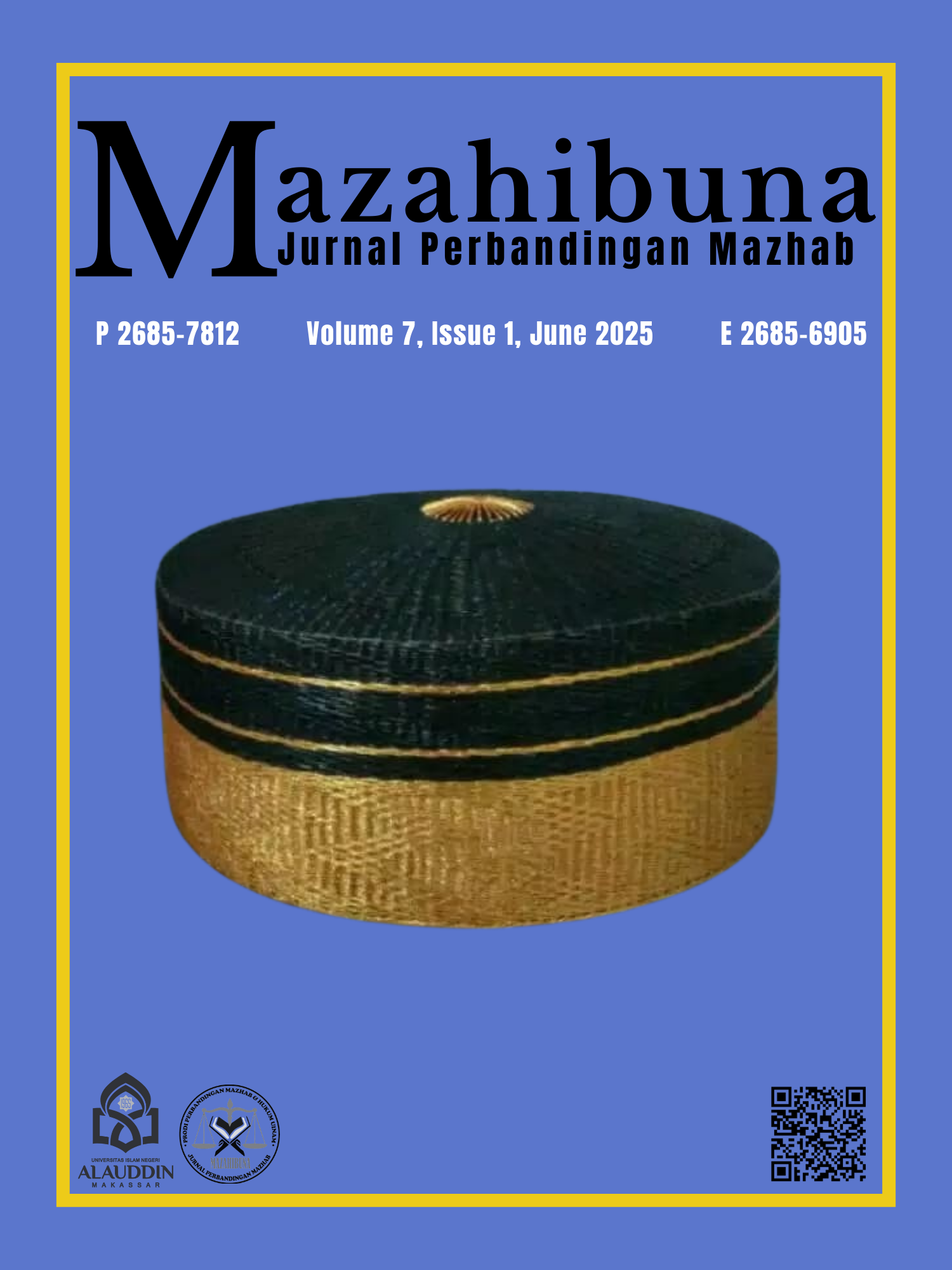Decoupling Jihad from Boko-Haram Insurgency
A Critical Analysis of Misconceptions and Realities in Nigeria
DOI:
https://doi.org/10.24252/mazahibuna.vi.55536Keywords:
Boko-Haram, Insurgency, Islamic Law, Jihad, MisinterpretationAbstract
The concept of Jihad is an essential Islamic doctrine often misrepresented and misunderstood, particularly in contemporary discourse. Jihad has a well-defined framework in Islamic law but insurgent groups such as Jama’atu Ahlis Sunnah Lida’awati wal Jihad in Nigeria, popularly known as Boko-Haram, claim to act under its banner. The situation raises concerns about the distortion of Jihad and subsequent conflation with insurgency. Therefore, this study aimed to critically examine the principles of Jihad under Islamic law and determine the possible connection to the activities of Boko-Haram. The analysis of misconceptions surrounding Jihad was to clarify its distinction from insurgency. This was achieved through the adoption of a qualitative method to analyze the classical and contemporary Islamic legal texts in order to establish the parameters of Jihad. Moreover, the principles were compared with the actions of Boko-Haram to determine whether their claims could be substantiated in Islamic jurisprudence. The results showed that the activities of Boko-Haram were not in line with the principles of Jihad as prescribed in Islamic law. However, their actions reflected the characteristics of insurgency which negated the ethical and legal framework of Jihad rooted in justice, equity, and moral conduct. This study contributed to the discourse on Jihad by systematically distinguishing the concept from insurgency through Islamic legal principles, offering a scholarly response to contemporary misinterpretations. The analysis further served as a foundation for future studies on religious misinterpretations in justifying violence and could also inform policy formulation, counter-radicalization tactics, and public awareness initiatives.
References
Adedire, S.A., Ake, M., & Olowojolu, O. (2016). Combating Terrorism and Insurgency in Nigeria: an International Collaborations Against Boko Haram. Fountain University Journal of Management and Social Sciences: 5(1) Special Edition, 5(1), 67–74. https://www.scirp.org/reference/referencespapers?referenceid=3091162
Adesoji, A. (2010). The Boko Haram Uprising and Islamic Revivalism in Nigeria. Africa Spectrum45, 45(2), 95–108. https://journals.sub.uni-hamburg.de/giga/afsp/article/view/330/330.html
Adesote, A. S., Akande, A. S., & Abimbola, J. O. (2024). Historicising Domestic Terrorism and Boko Haram Insurgency in the North East, Nigeria: Issues and Trends. Journal of Terrorism Studies, 6(1), 1–18. https://doi.org/10.7454/jts.v6i1.1076
Ahmad, N., Lilienthal, G., & Ahmad, S. S. (2023). Islamic Laws of War and Contemporary International Humanitarian Law: Discrimination and Proportionality. JE Asia & Int’l L., 16(1), 105. https://doi.org/10.14330/jeail.202316.1.06
Ajil, A. (2020). Politico-ideological violence: Zooming in on grievances. European Journal of Criminology, 19(2), 304–321. https://doi.org/10.1177/1477370819896223
Akowe, O. M. (2024). Insurgency in Nigeria, Boko Haram’s Operations and Future Outlook. International Journal of Politics and Security, 6(1), 1–21. https://doi.org/10.53451/ijps.983712
Downloads
Published
How to Cite
Issue
Section
License
Copyright (c) 2025 Ismael Funsho Yusuph, Taofeeq Abolaji Abdulraheem, Abdurrozaq Opeyemi Abdulazeez

This work is licensed under a Creative Commons Attribution 4.0 International License.

This work is licensed under a Creative Commons Attribution 4.0 International License.
Authors who publish with Mazahibuna: Jurnal Perbandingan Mazhab agree to the following terms:
- Authors retain copyright and grant the Mazahibuna: Jurnal Perbandingan Mazhab right of first publication with the work simultaneously licensed under Creative Commons Attribution License (CC BY 4.0) that allows others to share the work with an acknowledgment of the work's authorship and initial publication in this journal.
- Authors can enter into separate, additional contractual arrangements for the non-exclusive distribution of the published version of the work (e.g., post it to an institutional repository or edit it in a book), with an acknowledgment of its initial publication in this journal.
- Authors are permitted and encouraged to post their work online (e.g., in institutional repositories or on their website) before and during the submission process, as it can lead to productive exchanges, as well as earlier and greater citation of published work.










